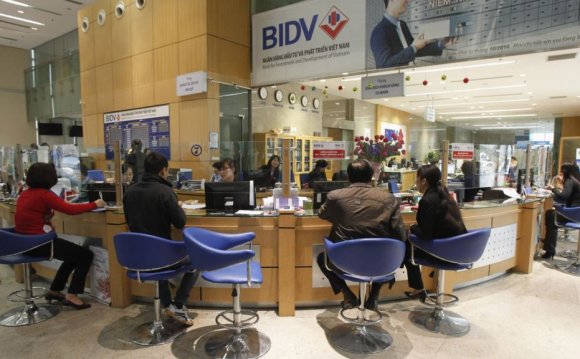
 Author: Tran Van Tho, Waseda University
Author: Tran Van Tho, Waseda University
In February 2013, the Vietnamese federal government accepted a master intend on economic restructuring when it comes to period 2013–20, which is designed to deal with the present dilemmas in Vietnam’s growth model.
By way of Doi Moi (the country’s economic reforms initiated during the 1980s) Vietnam successfully escaped the poverty trap and surfaced as less middle-income nation when you look at the late 2000s. But, from around 2007, the Vietnamese economy joined a new period, that has been characterised by sluggish growth, weak international competitiveness and macroeconomic uncertainty.
Before two years, Vietnamese leaders have actually recognised these problems and made a decision to change the existing input-driven and ineffective growth model. They've identified three regions of issue: state-owned businesses (SOEs), the financial system and public financial investment. Based On, reforms will likely to be manufactured in these three sectors within the short-run (2013–15). The economy is consequently likely to develop in a brand new, efficient, productive and globally competitive pattern by 2020. The long-term goal is actually for Vietnam in order to become a contemporary industrialised nation by this time around.
The issues analysed and the diagnostics proposed in the master plan are basically correct. Although master plan is simply too general, plus it needs centred from the most crucial concern — the full-scale reform of SOEs. This could supply a significant foundation for lots more comprehensive reform associated with whole economy. But for this reform to occur, Vietnam needs to decline the lasting development road increasingly being promoted — a socialist-oriented marketplace economy
The SOE industry must be very first reformed given that it affects others two sectors looking for reform. SOEs, specifically state financial conglomerates, have affected the financing activities regarding the banking sector and lobbied for community investment projects. Dilemmas in the SOE sector have actually largely stemmed from the nature associated with change from a well planned economic climate to an industry economy, and this can be characterised as ‘gradualism with Vietnamese characteristics’
The normal gradualist change strategy has actually three phases. In the first phase, the government postpones SOE reforms and encourages the introduction of non-SOE areas, particularly domestic personal organizations and FDI. This sometimes push non-SOE sectors to grow at an increased rate than SOEs, causing a stable decrease in the latter’s place throughout the economy. In the 2nd phase, SOEs are slowly reformed through exposure to hardened budget limitations and market competition. Eventually, inside third period, the privatisation of SOEs is undertaken, additionally the condition keeps ownership only in justifiable areas.
The Vietnamese design of gradualism is different. And even though their significance within the nationwide economic climate has actually declined, SOEs nonetheless take a solid position in several areas; enjoy better access to money, land alongside sources; and operate under smooth spending plan limitations. SOEs have received favoured therapy but already been protected from international competition. This can be a source of inefficiency for SOEs on their own and for the economic climate as a whole. And because 2006 SOEs have now been permitted to reorganise and cluster into conglomerates (called ), which may have impacted the way of economic policies in Vietnam and distorted the allocation of resources. The distortion of element markets has also been intensified by vested passions and a cosy government–business commitment.
Having less business governance features resulted in irresponsible investment by many people SOEs. Furthermore significant that numerous SOEs are active in the areas of import substitution sectors, real-estate, finance also service areas. They don't engage in producing produced products for export, and SOEs have a monopoly in heavy and chemical sectors which do not have worldwide competitiveness.
One significant consequence of guidelines favouring SOEs is that the personal sector has-been placed at a downside. This has maybe not gained from expansionary credit policies (including the stimulation plan in '09) but has had to experience the (such as for instance last year). Because private Vietnamese organizations, with intercontinental corporations investing in Vietnam, are significant manufacturing manufacturers and exporters of manufactured goods, their disadvantageous place has damaged the country’s worldwide competition.
In a word, the source of Vietnam’s present financial dilemmas may be the country’s design of gradualism. In the last phases of Doi Moi the gradualism of Vietnam’s transition method was efficient because reforms dedicated to farming and FDI, and existence of SOEs wasn't an obstacle in resource allocation. But SOEs have now become condition conglomerates, affecting Vietnam’s financial guidelines and aspect markets.
The security of SOEs was justified by the alleged socialist-oriented market economy isn't denied, genuine SOE reform will be hard to attain.
Tran Van Tho is Professor of Economics when you look at the class of Social Sciences.
A far more step-by-step view of the author’s argument is visible in ‘The Vietnamese Economy at Crossroads: New doi moi for Sustained Growth’, that will be published into the forthcoming issue of
YOU MIGHT ALSO LIKE












